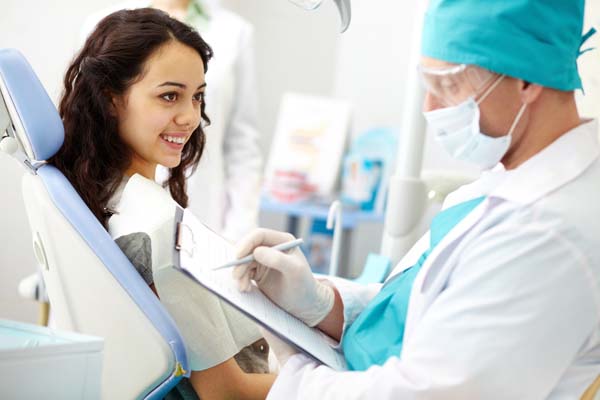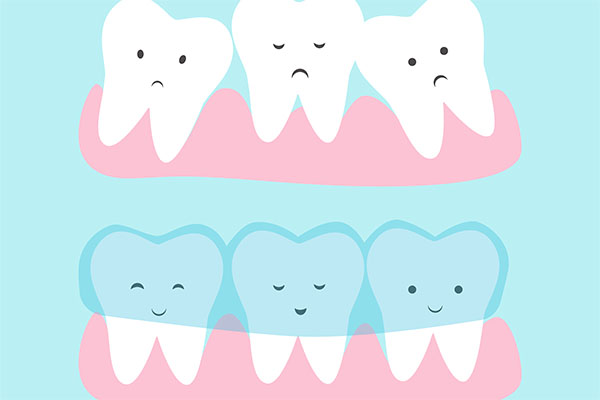Emergency Dentistry and the Coronavirus (COVID-19) Disease: Are Bleeding Gums an Emergency?

Many dentists have limited their practices to emergency dentistry in response to the Centers for Disease Control's COVID-19 guidelines for healthcare providers and dentists. The coronavirus is an airborne microorganism that infects people by attaching itself to mucus membranes in the nose and mouth. It is a highly contagious virus that remains active on some surfaces for a few days.
The global pandemic has led to most dentists only providing in-office care to those with dental emergencies. Those with issues that do not require emergency care can still consult with a dentist using teledentistry.
Do bleeding gums require emergency dentistry during COVID-19
The severity and cause of a person's bleeding gums determine if it requires emergency dental care during the COVID-19 pandemic. Most cases of bleeding gums are caused by the first stage of gum disease called gingivitis. The condition often comes with other symptoms like swollen and tender gums that bleed easily when brushing or flossing.
Gingivitis can be reversed with good oral hygiene and dental cleanings. Getting fast treatment is essential to prevent it from evolving into periodontal disease. This is the advanced stage of gum disease and the damage done from this point on cannot be reversed.
Periodontal disease counts as a dental emergency since it puts the health of the patient's teeth, gums and bone structures at risk. It also leads to bleeding gums that bleed whenever they are stimulated.
Other causes of bleeding gums
Bleeding gums can also be the result of a person being deficient of certain nutrients like vitamins K and C. Citrus fruits and green leafy vegetables are great sources of both nutrients. Pregnant women are more likely to have bleeding gums due to hormonal changes taking place in their bodies. Such cases of bleeding gums often resolve themselves shortly after childbirth.
People who take blood thinners like aspirin are more likely to experience bleeding gums since these drugs make it harder for blood clots to form.
Bleeding gums can also be the result of something as simple as brushing too hard or using a hard toothbrush. Making a small change like switching to a soft-bristled toothbrush might be all that is needed to resolve the issue. If the bleeding does not respond to such changes, it is time to see a dentist as that might be a sign of damaged gum tissues due to gum disease.
Bleeding gums caused by periodontal disease counts as a dental emergency and quick treatment can help to save the patient's teeth and the bone structures that support them. When left untreated, periodontal disease can lead to teeth falling out or becoming loose.
Find out if you need emergency care
Dealing with bleeding gums? Call our Cumming clinic for an over the phone evaluation. Our dentist will help you to determine if your condition requires emergency dental care. If it does not, our dentist can educate you about ways to deal with the problem.
Request an appointment here:https://testcummingsfamilydentist.dgdevnext.com or call Cumming's Family Dentist at (770) 205-9226 for an appointment in our Cumming office.
Recent Posts
An emergency dentist is usually a general dentist who has the staff, resources, hours, and willingness to treat dental emergencies. A dental emergency may include a range of mouth injuries or developing oral health concerns. It can be helpful to fully understand when to see an emergency dentist for prompt treatment.When an individual has an…
Dental emergencies are unexpected and can be very stressful. Continue reading to learn about five common situations that are considered a dental emergency.Outlined below are accurate overviews of five types of dental emergencies that commonly occur:Injuries happen all the time due to sports or accidents. When a tooth becomes completely dislodged from the mouth, it…
Wondering whether you should see an emergency dentist for a cracked tooth? Read on to find out. A cracked tooth can lead to discomfort and become a frightening situation, especially if the crack happens suddenly as a result of dental trauma. When this occurs, it is important to contact an emergency dentist to determine if…
While it is always a good idea to have an emergency dentist on call, individuals can avoid a dental emergency and all the pain, cost and hassle that comes with one by taking preventative measures. In many cases, this simply entails adopting healthy lifestyle habits.Dental emergencies, which range from toothache to fractured teeth to abscesses,…


